- Writers
Review: Jan Vilcek’s “Love and Science, A Memoir”
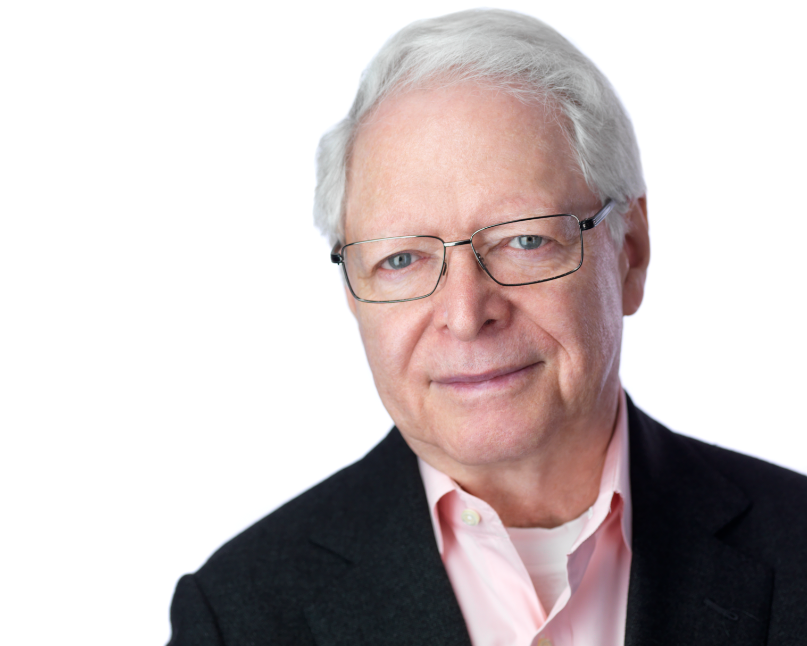
A conversation about the contributions of immigrants to the United States in the twentieth century would not be complete without an acknowledgment of Jan Vilcek, who immigrated to the United States in 1965. Dr. Vilcek, is not only largely responsible for the discovery of Remicade, he also founded and leads the Vilcek Foundation, which raises awareness of immigrant contributions in America and fosters appreciation of the arts and sciences. Dr. Vilcek has been an extraordinary supporter of The Paul & Daisy Soros Fellowships for New Americans, having served as a panelist for the Fellowship for many years. Former Paul & Daisy Soros Fellowships for New Americans Director Stanley Heginbotham reviews Dr. Vilcek’s recently released book, Love and Science, A Memoir, which explores his remarkable life: Love and Science, a Memoir by Jan Vilcek is a rewarding read for a much wider audience than its title might at first glance suggest. If you are interested in Crohn’s disease and related autoimmune conditions, or in the translation of arcane science into medical therapies, or in the experiences of Jewish refugees from central European Nazism and Communism, or in philanthropy in behalf of highly accomplished immigrants to America in the sciences and the arts, you will find it engrossing. It is also an adventure story of a modest, unprepossessing and quite admirable scientist and his art historian wife.
Vilcek was a key figure in the development of Remicade, a critical drug for the treatment of Crohn’s disease, rheumatoid arthritis, and related autoimmune conditions. Though such a renowned scientist might have been excused for writing a dense, jargon-filled, and self-important account of this achievement, Vilcek writes about the causes of these diseases and the process by which his lab was able to develop Remicade in simple and clear prose that can be understood by the intelligent layperson. Anyone who is afflicted with—or is concerned about someone so afflicted—will find the first fifty pages of this book to be very rewarding. These pages also illuminate the sociology and economics of scientific discovery.
Vilcek leads the reader through the sequence of scientific breakthroughs that lay the groundwork for the discovery of Remicade and helps us understand the relationships between scientific labs, university bureaucracies, and private sector entrepreneurs that were involved. He describes his insights and decisions that were part of this process, but is also clear that luck was very instrumental in his success. And he is clear that his good fortune results in part from the costs paid by patients who are helped by Remicade: it does not cure the conditions it treats and so must be acquired over many years, and, as marketed by Johnson and Johnson, it is very expensive.
Vilcek is also remarkably candid in writing about the challenges of adjusting to the extraordinary wealth that accrued to him and his wife as a result of the flow of royalties from the sales—over $10 billion per year recently—of Remicade. Rather than figuring out—as many would have done—how they could elevate their standard of living to spend most of this unexpected wealth, they reflected on how they could use it primarily to benefit others. Their decision to dedicate a substantial share of their flow of royalties to the NYU School of Medicine, when combined with the royalties that the school received from Vilcek’s development of Remicade, may well have kept that institution afloat. Their decision to commit another share to a program of awards for immigrants to the United States who have made highly significant contributions to the fields of biomedicine and the arts makes sense only in light of the second major section of the book.
We learn that Vilcek came of age as a Jewish boy in a non-religious family in Bratislava, the capital of the Slovak region (and now country) of the then-Czechoslovakia. He describes the perils of growing up under Nazi regimes and the means whereby he and his nuclear family avoided getting caught up in the net that led so many Jews to extermination. He shares with us the path that took him to medical school and to research on viruses rather than clinical practice. We learn about the cross-pressures that led him and his wife Marica (pronounced Mar IT za) to forego the very constrained but reasonably comfortable life of a scientist in communist Czechoslovakia for the high risk challenges of defection and the uncertainties of how he would be able to make a living as a practicing scientist in the United States. The striking feature of this narrative is how Jan and Marica shifted their identities from refugee defectors from Communism to Americans who decided to speak to each other only in English. Vilcek writes that they did so because—unlike many of their Czech and Slovak-speaking friends who were living in the Czechoslovakian past—“we did not want to feel like perpetual strangers in our new home.”
Stan Heginbotham was extensively involved with the Paul and Daisy Soros Fellowships for New Americans during its first 18 years, as senior consultant for 15 years and as director for three years. He and his wife, Connie, spend the winter months in New York City and the summer months in the mountains of Colorado. ∎
Featured Fellows
-

Safia Zyla
MIP, Stanford University
Safia Gelle is an immigrant from Ethiopia. Fellowship awarded in 2025 to support work towards an MIP in International Policy at Stanford University
-
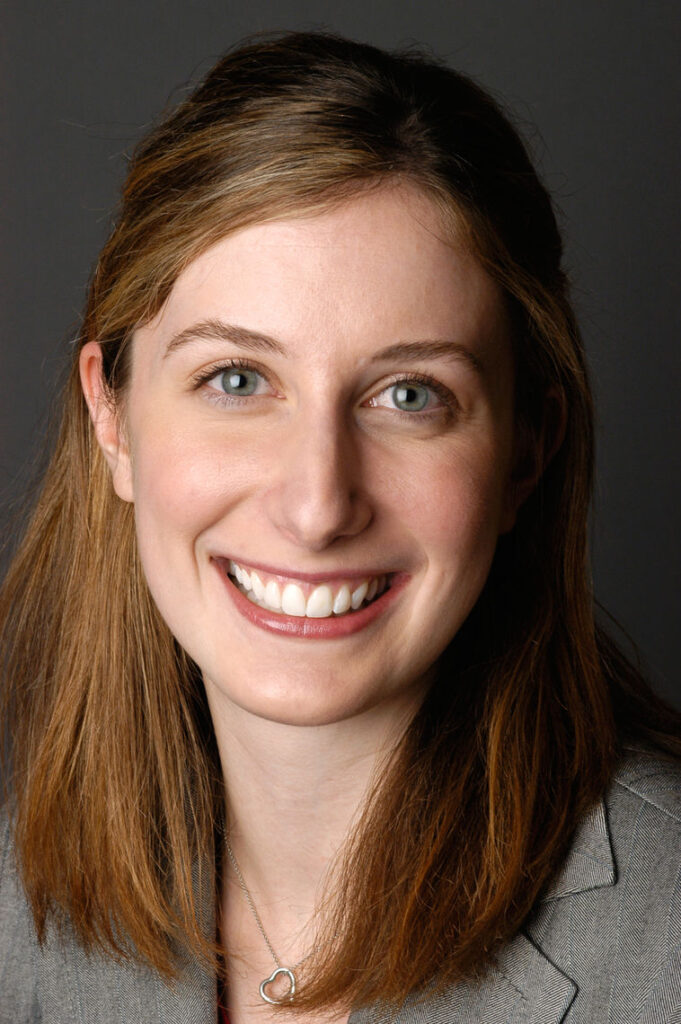
Corinna Zygourakis
Assistant Professor, Department of Neurosurgery at Stanford University School of Medicine
Corinna Zygourakis is the child of immigrants from Greece. Fellowship awarded in 2006 to support work towards an MD in Medicine at Harvard University
Keep Exploring
-
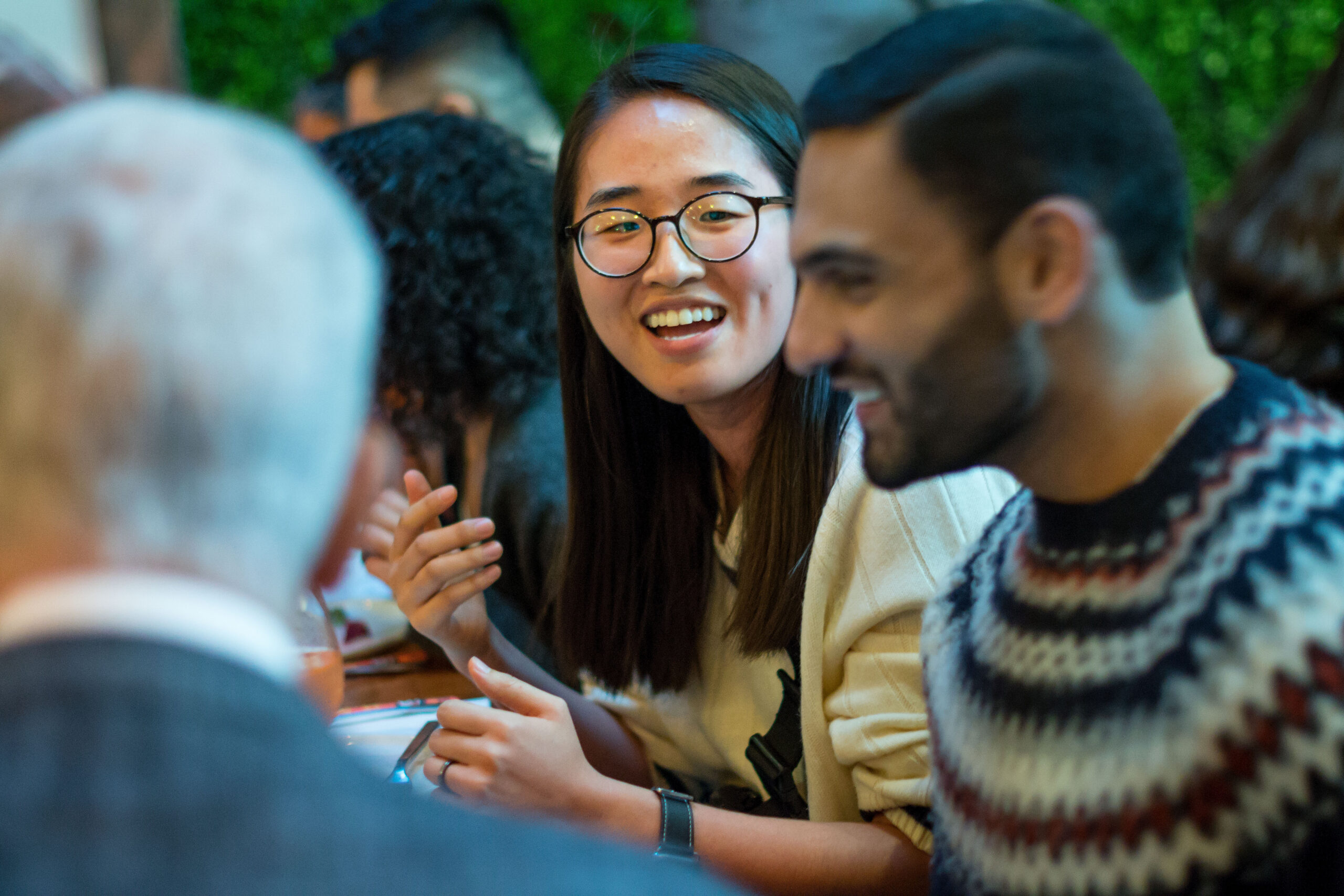 Read more: Kathy Ku Steps into Leadership as PDSFA Chair
Read more: Kathy Ku Steps into Leadership as PDSFA Chair- Board of Directors
- Fellowship News
Kathy Ku Steps into Leadership as PDSFA Chair
-
 Read more: Q&A with MD/PhD Student Silvia Huerta Lopez
Read more: Q&A with MD/PhD Student Silvia Huerta LopezQ&A with MD/PhD Student Silvia Huerta Lopez
-
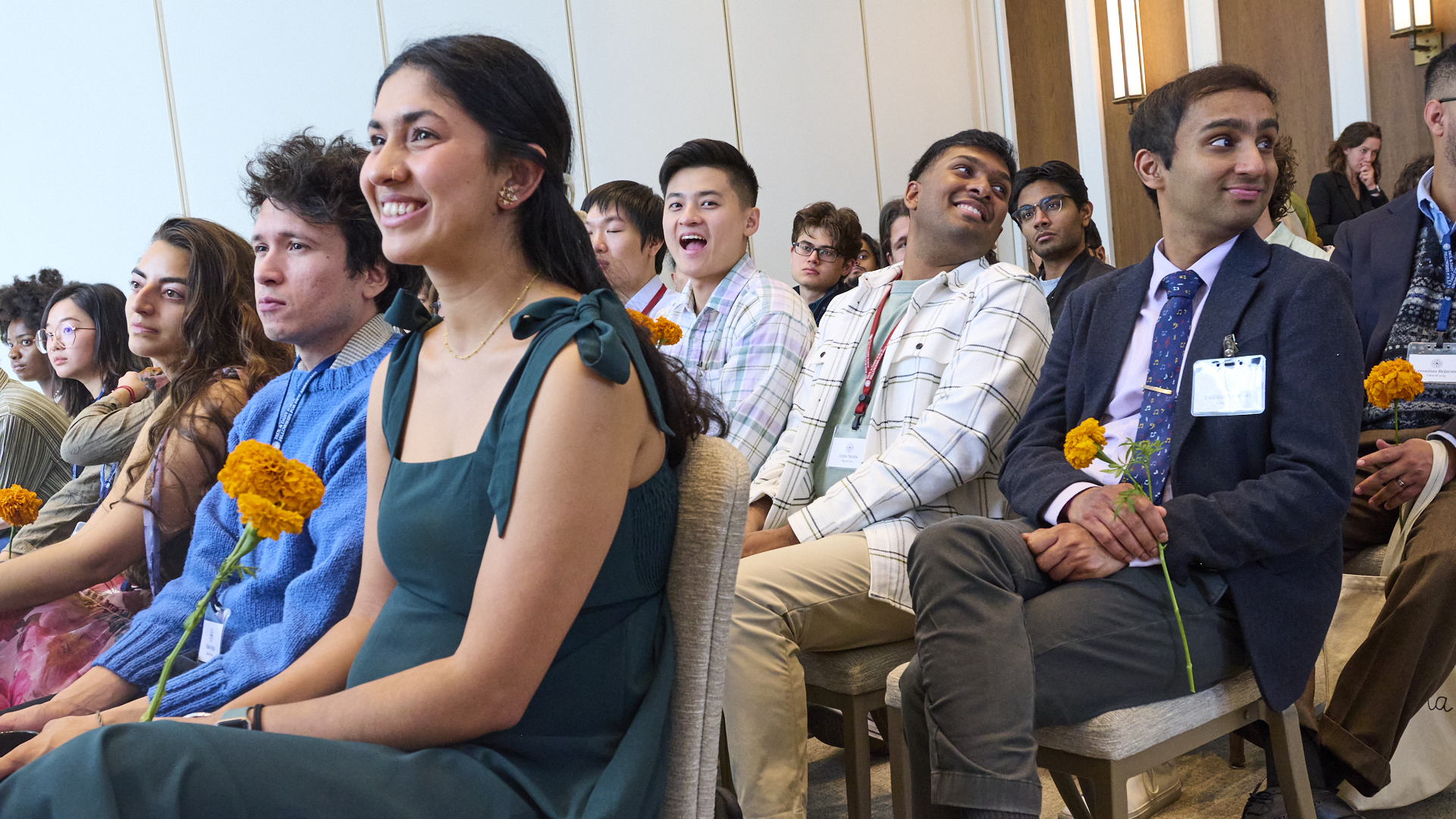 Read more: PD Soros Eligibility Guide for PhD Applicants
Read more: PD Soros Eligibility Guide for PhD Applicants- Applicant Information
PD Soros Eligibility Guide for PhD Applicants
-
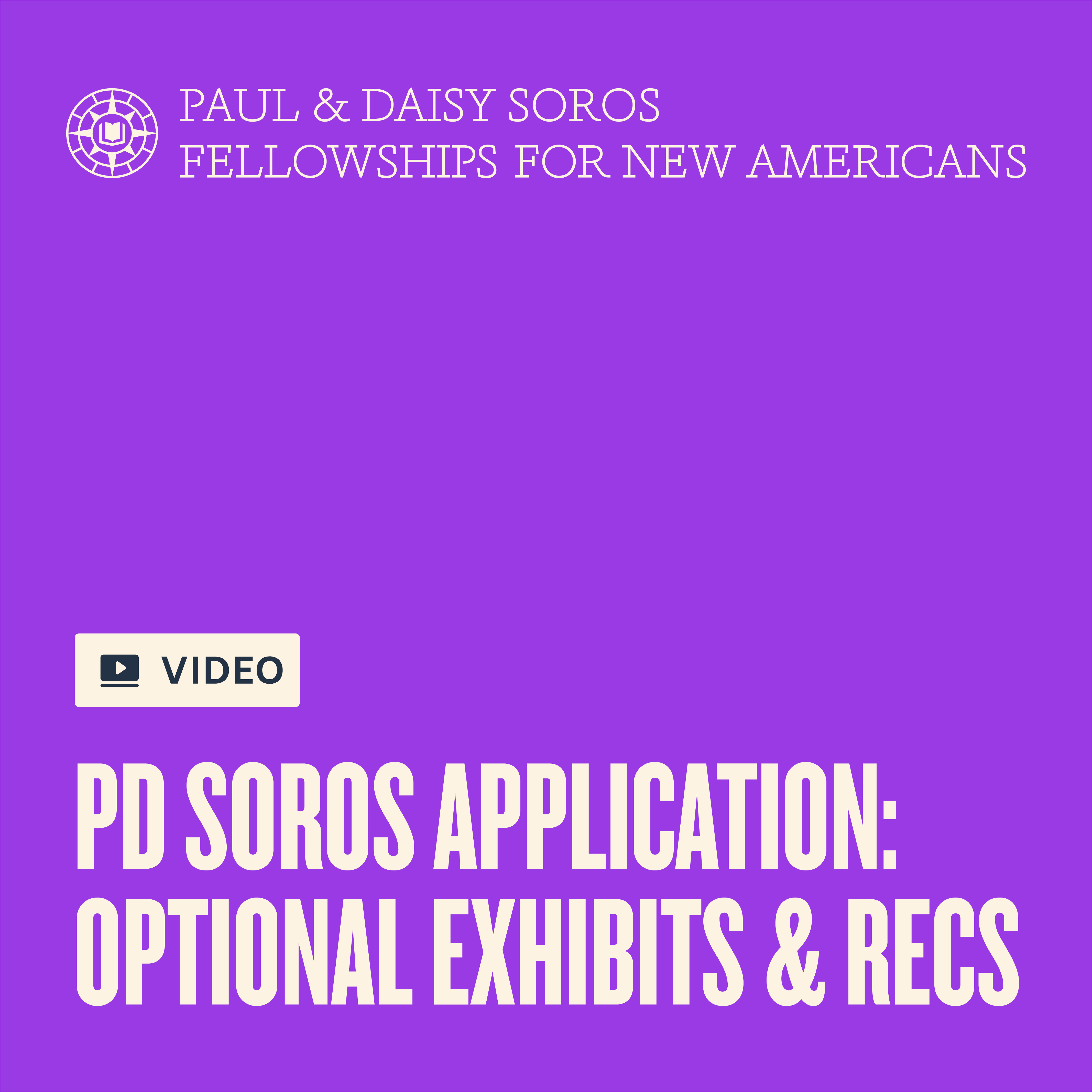 Read more: Watch: Optional Exhibits & Recommendations
Read more: Watch: Optional Exhibits & Recommendations- 2025 Information Sessions
Watch: Optional Exhibits & Recommendations